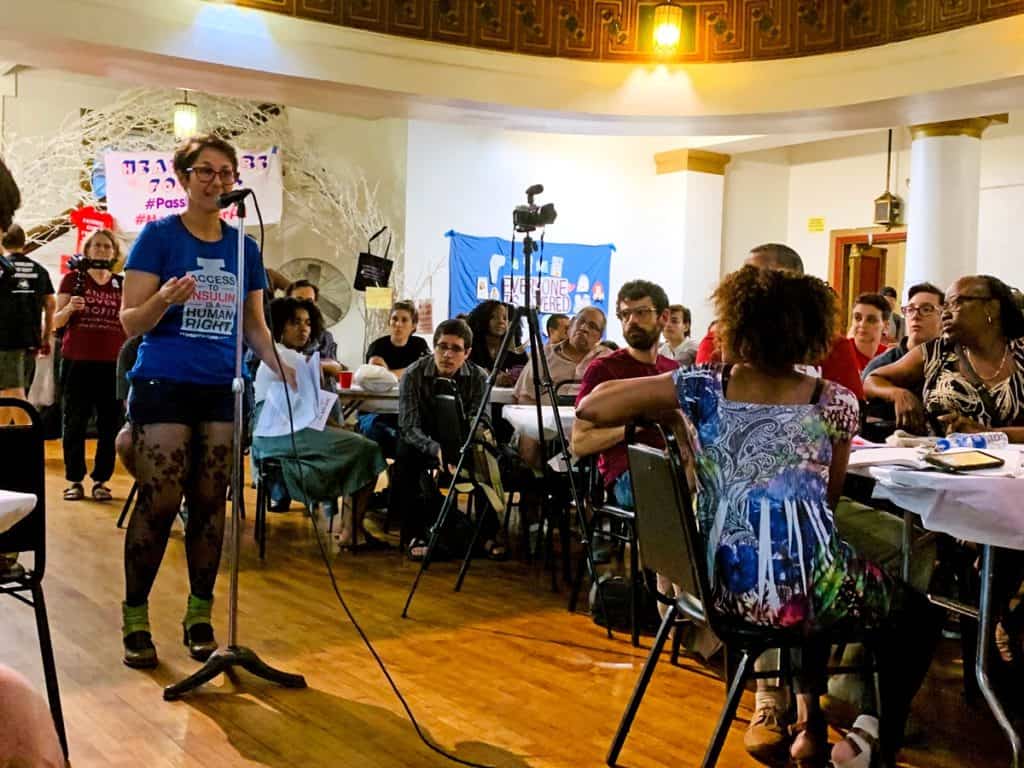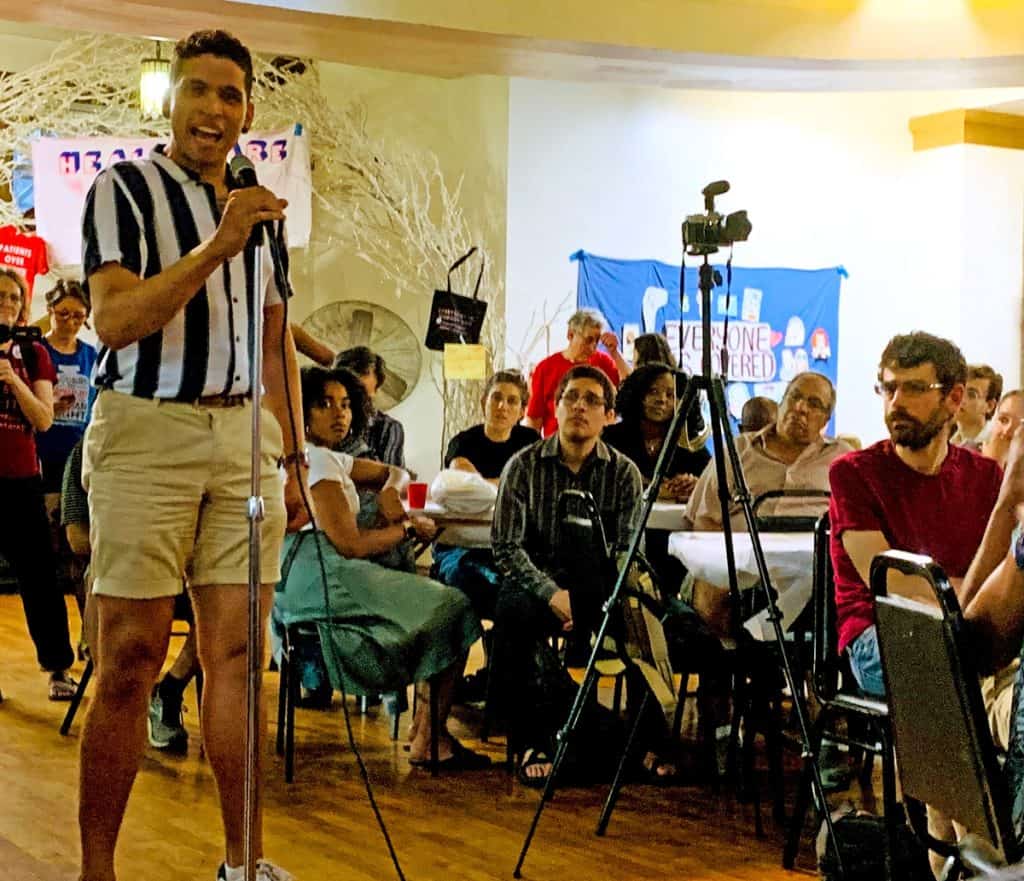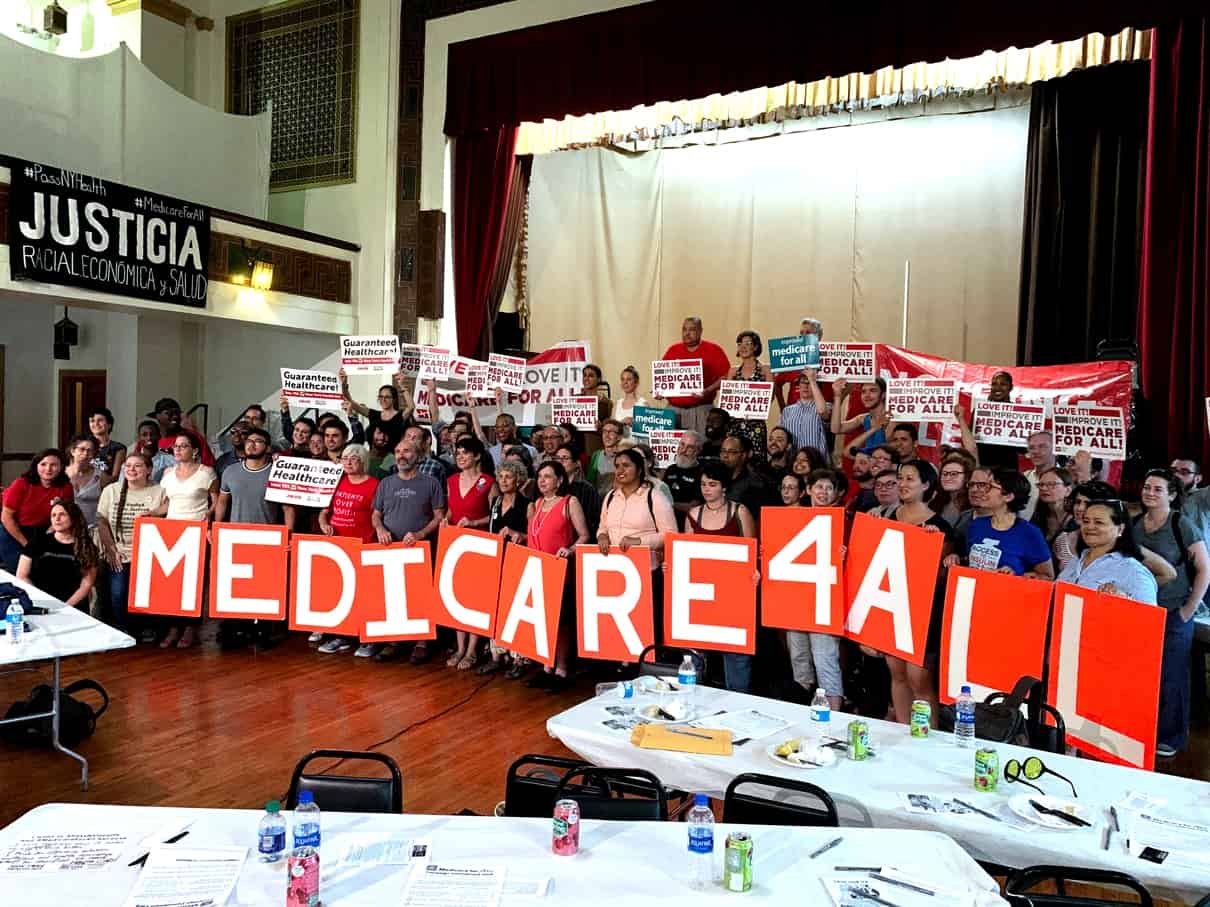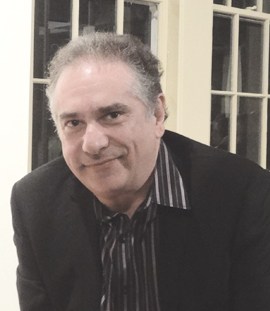A grassroots movement to ‘fix America’s broken healthcare system’ by implementing Medicare for All showed up in Fort Greene on August 8. This came a week after CNN’s telecast of the second round of the Democratic presidential primary debates in Detroit, where candidates lengthily discussed the issue of healthcare.
Congresswoman Pramila Jayapal (D-WA) officially introduced the Medicare for All Act of 2019 (H.R. 1384) in late February as a redrafted version of the House Progressive Caucus’s Medicare for All bill. It would establish a single-payer system in which the government, using tax dollars, would replace private insurance companies to fund free-at-the-point-of-service healthcare for all United States residents.
Here in Brooklyn, activists, nurses, physicians, patients and local constituents gathered at the Brooklyn Masonic Temple, brainstorming ways on how to take action and encourage congressmen Hakeem Jeffries and Max Rose, among other holdouts, to co-sponsor the bill. 12 of 27 U.S. Representatives from New York State have not yet signed on in support. Red Hook’s representative, Nydia Velasquez, is a founding member of the Congressional Medicare for All Caucus.
“Several years ago, Medicare for All was seen as a fringe idea, but now it has taken the center stage of the conversation around fixing America’s broken healthcare system. Our organizing is working,” said Lora Logan, a VA nurse.
By the end of the evening, some attendees signed campaign commitment cards, putting down that they’d attend a community canvass on either August 10 or 17 (or host their own at their own convenience); drop by Rep. Jeffries’ office to let him know that they support the bill; participate in a future community meeting with Rep. Jeffries at his office; or attend a strategy meeting with the Democratic Socialists of America on August 19 in Park Slope.
Speak-and-share

Marina Tsaplina, a patient advocate and member of the New York Insulin4All chapter, has lived with type 1 diabetes for the last 38 years. She spoke about how important it is for diabetics to have insulin in order to survive. But lots of uninsured Americans can’t afford it, and even those with insurance often can’t manage the additional out-of-pocket prescription costs.

Jose Figueroa, a young man living with HIV, said he’s limited to living in New York State because of his access to covered providers and services, and has to fight with his pharmaceutical company if he wants to have an extended stay in another country. He added that this isn’t just a fight for better healthcare, but a fight for diversity and the LGBTQ communities as well.
“We need support for HIV and support plans, support for mental health and support for our trans brothers and sisters who need HRT [hormone replacement therapy] and other services that we don’t have access to,” he continued. “There’s absolutely no reason for this. Profit should not be the priority for our healthcare.”
“The system we have is broken. It doesn’t work for me as a doctor – I can’t get access to my patients – and it doesn’t work for me as a patient – I can’t get access to the doctors or hospitals I want,” said Dr. Donald Moore, the night’s keynote speaker.
Racial justice issue
As per a September 2018 report by the U.S. Census Bureau, nearly 30 million Americans are uninsured, and at least 41 million covered adults are considered underinsured, meaning that they can’t afford the costs of their co-pays and deductibles. While some healthcare conversations have revolved around access and money, others have connected to racial injustice as well.
“Not only are we pressuring our elected officials to support Medicare for All as the only proposal that takes profiteering out of the healthcare system, but we’re raising this as a racial justice issue,” said Darius Gordon, the Center for Popular Democracy’s National Field Organizer, who facilitated the evening’s assembly. “Over half the people who are without insurance are black and brown people between the ages of 26 and 64. Having a plan that would include them is something that we tremendously need.”
Updated on 9/9 to reflect Rep. Jeffries’ announcement of sponsorship of legislation to improve the U.S. healthcare system: Rep. Jeffries released the following statement (on Sept. 4) on his sponsorship of a series of bills designed to drive down healthcare costs and expand coverage for everyday Americans:
“House Democrats are focused on lowering healthcare costs for everyday Americans. It is a top priority in connection with our For The People agenda, and one that I strongly support. We are also united behind the principle of universal access to high quality and affordable healthcare for all. There are several pathways to achieve this objective, including implementation of a single-payer system or the adoption of a robust public option.
At the moment, it is important that we press forward with our fight to protect the Affordable Care Act from right-wing Republican efforts to destroy it. We must also work to strengthen the Affordable Care Act and its groundbreaking provisions that improve coverage options, expand Medicaid and ensure that people with pre-existing conditions are protected.
However, given the enduring nature of our healthcare access and affordability crisis, more must be done. Legislative efforts such as the Medicare for All Act of 2019 (H.R. 1384) and the Medicare Negotiation and Competitive Licensing Act (H.R. 1046) are bold and aspirational. That is appropriate. While these and other sweeping initiatives remain a work in progress, they are an important part of the ongoing debate as to how we strengthen our healthcare delivery system.
I am proud to co-sponsor these important healthcare initiatives and appreciate the tremendous leadership provided by all of the members of the House Democratic Caucus, particularly Rep. Pramila Jayapal. As evidenced by the historic passage of the Affordable Care Act, when we work together, we can enact meaningful change in the lives of everyday Americans. I look forward to working closely with my colleagues on these healthcare policies as we continue our fight For The People.”
Jeffries has agreed to cosponsor five healthcare related bills including the Medicare for All Act of 2019 (H.R. 1384), Medicare-X Choice Act of 2019 (H.R. 2000), Medicare Buy-In and Health Care Stabilization Act of 2019 (H.R. 1346), State Public Option Act (H.R. 1277) and Medicare Negotiation and Competitive Licensing Act of 2019 (H.R. 1046).
Top photo of attendees from the Aug. 8 assembly. Photo by DeGregorio.
Author
-

George Fiala has worked in radio, newspapers and direct marketing his whole life, except for when he was a vendor at Shea Stadium, pizza and cheesesteak maker in Lancaster, PA, and an occasional comic book dealer. He studied English and drinking in college, international relations at the New School, and in his spare time plays drums and fixes pinball machines.
View all posts
George Fiala has worked in radio, newspapers and direct marketing his whole life, except for when he was a vendor at Shea Stadium, pizza and cheesesteak maker in Lancaster, PA, and an occasional comic book dealer. He studied English and drinking in college, international relations at the New School, and in his spare time plays drums and fixes pinball machines.










